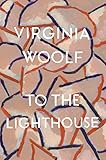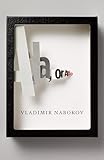 The Anatomy of Melancholy, Robert Burton (1621): This is a dense, digressive, wonderfully learned, quasi-autobiographical, quasi-psychological exploded encyclopedia of all things melancholic and otherwise—a mishmash of case studies (a man who thought he was turned to glass), citations from contradictory ancient and modern authorities (c. 1620), quotations from the Bible, essays on geography and climatology, observations on the deficiencies of the Catholic Church, recommendations of study as a cure for melancholy (and then reflections on study as a cause of melancholy), a utopia. Burton described his Anatomy as: “a rhapsody of rags gathered together from several dung-hills, excrements of authors, toys and fopperies confusedly tumbled out, without art, invention, judgement, wit, learning, harsh, raw, rude, phantastical, absurd, insolent, indiscreet, ill-composed, indigested, vain, scurrile, idle, dull, and dry…” Indeed, such it is, and for this intellectually dense disorder, the book can be baffling and dizzy-making (esp. if you read the NYRB edition, the most readily available, which has very close-set type and does not translate all of Burton’s Latin). Burton’s long, loose, Latinate sentences can also be rough going. But it is very much worth a try. Burton is an endearingly humble narrator who, while he calls himself an ignorant smatterer, might teach you to accept the incurable madness— melancholy— fallenness—of humankind.
The Anatomy of Melancholy, Robert Burton (1621): This is a dense, digressive, wonderfully learned, quasi-autobiographical, quasi-psychological exploded encyclopedia of all things melancholic and otherwise—a mishmash of case studies (a man who thought he was turned to glass), citations from contradictory ancient and modern authorities (c. 1620), quotations from the Bible, essays on geography and climatology, observations on the deficiencies of the Catholic Church, recommendations of study as a cure for melancholy (and then reflections on study as a cause of melancholy), a utopia. Burton described his Anatomy as: “a rhapsody of rags gathered together from several dung-hills, excrements of authors, toys and fopperies confusedly tumbled out, without art, invention, judgement, wit, learning, harsh, raw, rude, phantastical, absurd, insolent, indiscreet, ill-composed, indigested, vain, scurrile, idle, dull, and dry…” Indeed, such it is, and for this intellectually dense disorder, the book can be baffling and dizzy-making (esp. if you read the NYRB edition, the most readily available, which has very close-set type and does not translate all of Burton’s Latin). Burton’s long, loose, Latinate sentences can also be rough going. But it is very much worth a try. Burton is an endearingly humble narrator who, while he calls himself an ignorant smatterer, might teach you to accept the incurable madness— melancholy— fallenness—of humankind.
 Paradise Lost, John Milton (1667): With Milton, Latinate syntax is again at the heart of the difficulty: Milton reverses the normal order of words and clauses (Yoda-ish, only more complex). Milton’s blank verse epic is also long (“No one ever wished it longer,” Samuel Johnson once remarked), as well as being one of the most richly allusive works in the language–and these allusions are sometimes crucial to making sense of the dramatic action of the poem and the nature and motivations of its characters (Adam, Eve, Satan, God the Father, Jesus, assorted angels—the story of Paradise Lost is the story of the fall of man (more or less) as reported in the first book of the Old Testament, Genesis). Milton drew his references from classical literature, philosophy, history, and myth, as well as contemporary (i.e. C17th) politics, theology, and religious debates, and so for those determined to get at the very marrow of Milton, Merritt Y. Hughes‘ Complete Poems and Prose, the definitive scholarly edition, is the best choice for its excellent, extensive footnotes (not endnotes, which are irritating and slow reading immeasurably). However, Milton’s poetry can stand on its own: listening to Milton read aloud by a talented reader, the convoluted syntax comes to seem almost natural, and the grandeur of Milton’s blank verse shines forth. If you can’t find a Milton marathon in your neighborhood, try English classical actor Anton Lesser’s audiobook recording. Illustrated editions of the poem can also be illuminating: Gustave Doré and William Blake’s illustrations are the best (and there’s a $10 Dover edition of the Doré illustrations). As an additional warm-up, you might consider reading “Happy Birthday, Milton“, by New York Times columnist and legendary Milton scholar Stanley Fish.
Paradise Lost, John Milton (1667): With Milton, Latinate syntax is again at the heart of the difficulty: Milton reverses the normal order of words and clauses (Yoda-ish, only more complex). Milton’s blank verse epic is also long (“No one ever wished it longer,” Samuel Johnson once remarked), as well as being one of the most richly allusive works in the language–and these allusions are sometimes crucial to making sense of the dramatic action of the poem and the nature and motivations of its characters (Adam, Eve, Satan, God the Father, Jesus, assorted angels—the story of Paradise Lost is the story of the fall of man (more or less) as reported in the first book of the Old Testament, Genesis). Milton drew his references from classical literature, philosophy, history, and myth, as well as contemporary (i.e. C17th) politics, theology, and religious debates, and so for those determined to get at the very marrow of Milton, Merritt Y. Hughes‘ Complete Poems and Prose, the definitive scholarly edition, is the best choice for its excellent, extensive footnotes (not endnotes, which are irritating and slow reading immeasurably). However, Milton’s poetry can stand on its own: listening to Milton read aloud by a talented reader, the convoluted syntax comes to seem almost natural, and the grandeur of Milton’s blank verse shines forth. If you can’t find a Milton marathon in your neighborhood, try English classical actor Anton Lesser’s audiobook recording. Illustrated editions of the poem can also be illuminating: Gustave Doré and William Blake’s illustrations are the best (and there’s a $10 Dover edition of the Doré illustrations). As an additional warm-up, you might consider reading “Happy Birthday, Milton“, by New York Times columnist and legendary Milton scholar Stanley Fish.
 A Tale of A Tub, Jonathan Swift (1684-1710): Swift may have sat across the aisle from Milton (Swift was a Church of England priest who supported the monarchy; Milton, a fervently committed dissenter who supported the English Revolution), but for the difficulty of their literary work and for the passion of their commitments to opposed theologies, they have a certain improbable correlation. The sources of difficulty in Swift’s Tale, however, are somewhat different from those of Paradise Lost. Swift’s prose style is pretty straightforward as 18th century prose styles go, though it may take a while to get used to sentences that might begin with phrases like “So that…,” occasional syntactic inversions, occasional paragraph-length sentences, and (in some editions) capitalization of common nouns (quite common in early modern English–Milton’s as well). The most marked difficulty with Swift is that the issues, persons, and events he continually alludes to were very much of his particular historical moment, an age defined by the sort of party politics and culture wars we know too well, but that are hard to get a grasp on at 300 years remove. With an edition that has decent footnotes, you should be able to orient yourself pretty well. And what’s more, the finer points of late 17th and early 18th century political squabbles are not the main event in any case: the Tale is a primarily a satire of “Modern” writing—writing produced by the (then) new class of professional writers whom many educated and aristocratic readers came to despise (akin to the way certain publications have denigrated bloggers and blogging). These Grub Streeters were paid (oh, how distasteful!) and had not necessarily gone to Oxford or Cambridge, and might not have read Aristotle or Horace, and didn’t necessarily care about the classics or classical rules of art. All of this was deeply distressing to Swift. The persona that Swift assumes in the Tale is a parody of one of the worst of these Grub Street hacks (and I’ve read them—they often are dreadful and crazy and bad—though not always). Swift’s hack is perpetually distracted and self-absorbed and, as we discover by degrees, quite probably insane.
A Tale of A Tub, Jonathan Swift (1684-1710): Swift may have sat across the aisle from Milton (Swift was a Church of England priest who supported the monarchy; Milton, a fervently committed dissenter who supported the English Revolution), but for the difficulty of their literary work and for the passion of their commitments to opposed theologies, they have a certain improbable correlation. The sources of difficulty in Swift’s Tale, however, are somewhat different from those of Paradise Lost. Swift’s prose style is pretty straightforward as 18th century prose styles go, though it may take a while to get used to sentences that might begin with phrases like “So that…,” occasional syntactic inversions, occasional paragraph-length sentences, and (in some editions) capitalization of common nouns (quite common in early modern English–Milton’s as well). The most marked difficulty with Swift is that the issues, persons, and events he continually alludes to were very much of his particular historical moment, an age defined by the sort of party politics and culture wars we know too well, but that are hard to get a grasp on at 300 years remove. With an edition that has decent footnotes, you should be able to orient yourself pretty well. And what’s more, the finer points of late 17th and early 18th century political squabbles are not the main event in any case: the Tale is a primarily a satire of “Modern” writing—writing produced by the (then) new class of professional writers whom many educated and aristocratic readers came to despise (akin to the way certain publications have denigrated bloggers and blogging). These Grub Streeters were paid (oh, how distasteful!) and had not necessarily gone to Oxford or Cambridge, and might not have read Aristotle or Horace, and didn’t necessarily care about the classics or classical rules of art. All of this was deeply distressing to Swift. The persona that Swift assumes in the Tale is a parody of one of the worst of these Grub Street hacks (and I’ve read them—they often are dreadful and crazy and bad—though not always). Swift’s hack is perpetually distracted and self-absorbed and, as we discover by degrees, quite probably insane.
The work that this unreliable narrator promises in the title page—A Tale of a Tub—is what seems at first a pretty straightforward allegory of the history of the Christian church and its breaking into Catholicism, Anglicanism, and dissenting Protestantism. But the hack is continually interrupting this tale to hold forth on a variety of increasingly bizarre subjects: his own ill health, his poverty, “the use and improvement of madness,” the other books he is going to write soon (“A general history of Ears,” “A Modest Defense of the Proceedings of the Rabble in all Ages”). As you near the end, it feels like the whole world is being sucked down by the ferocious energy of the satire: the Church of England, Jesus, and even Swift himself, who seems to enjoy occupying the subjectivity of his madman a bit too much. Swift claimed that the Tale was designed “to expose the Abuses and Corruptions in Learning and Religion.” That it does—but there’s very little left standing when all’s exposed. In the realm of satire, this has my vote for the greatest of them all (but I, invasive narrator that I am, must admit that I’m hardly impartial as a one-time graduate student of eighteenth-century literature).









